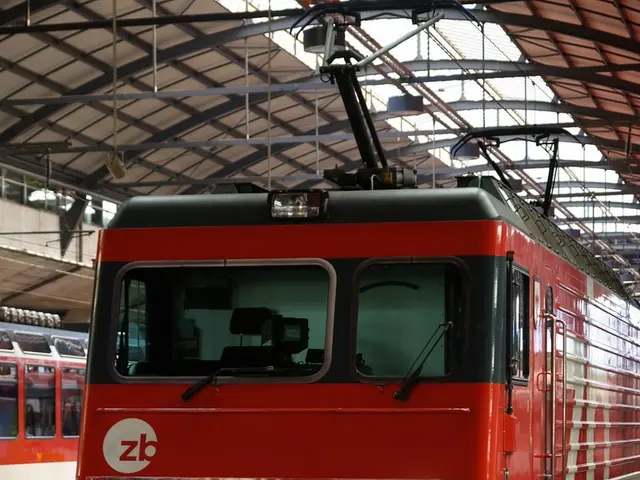Train Woes: Passengers Speak Out on Dirty Trains, Punctuality, and More
Commuters are creating unsanitary conditions on trains within the rail network.
Traveling by train in Germany has its challenges, according to a recent survey. Regular complaints include dirty trains, insufficient toilets, and communication issues. Here's a lowdown on the situation and what's being done to tackle these problems.
The Issue: Unpleasant and Unreliable Journeys
More than a third of passengers (34 percent) voiced discontent over dirty train stations and local trains. The availability and cleanliness of toilets were also a concern, with over half (52 percent) unsatisfied with the facilities at train stations, and nearly one in five demanding improvements.
Unreliability, too, is an irritant, with 80 percent of respondents preferring punctual and dependable connections over a higher number of trains.
The Gap: Communication Breakdown
While apps were the least problematic information channel for passengers, dissatisfaction was higher (30 percent) with announcements and station displays. This indicates both a trend towards mobile usage and the weaknesses in stationary information systems, as explained by the Federal Network Agency.
The Path Forward: Plans for Improvement
To address these concerns, Germany is making sizeable investments in its railway system, planning to put around €150 billion into modernizing and expanding the rail network. Plans include renovating existing infrastructure for better reliability, building new dedicated lines to separate long-distance trains from regional and freight traffic, and launching new service offerings such as direct connections and eco-friendly night train services.
However, despite these improvements, punctuality remains an issue, with on-time performance hovering around 62.5% for the future goal of 65-70% to be achieved by 2025. Separate lines for long-distance trains are in the pipeline but will take up to a decade to complete.
Specific initiatives to target cleanliness and communication issues were not detailed in the available sources, suggesting more measures might be in the works.
In conclusion, while improvements are being made, passengers continue to face challenges related to dirty trains, insufficient toilets, and communication deficiencies. Further details on specific measures to tackle these issues are yet to be released, but the ongoing modernization drive and expanded services may help alleviate some of these problems in the long run.
- Evidently, vocational training programs could be implemented to educate employees on maintaining community policy regarding cleanliness and hygiene in train stations and trains.
- To attract more investments and enhance vocational training in the rail industry, finance and transportation sectors should collaborate to develop effective marketing strategies that highlight the benefits and potential growth opportunities associated with improvements in rail services and infrastructure.








